Transcription of Freedom of Speech and Press: Exceptions to the First …
1 CRS Report for CongressPrepared for Members and Committees of Congress Freedom of Speech and Press: Exceptions to the First amendment Kathleen Ann Ruane Legislative Attorney September 8, 2014 Congressional Research Service 7-5700 95-815 Freedom of Speech and Press: Exceptions to the First amendment Congressional Research Service Summary The First amendment to the United States Constitution provides that Congress shall make no law .. abridging the Freedom of Speech , or of the press. This language restricts government s ability to constrain the Speech of citizens. The prohibition on abridgment of the Freedom of Speech is not absolute. Certain types of Speech may be prohibited outright. Some types of Speech may be more easily constrained than others.
2 Furthermore, Speech may be more easily regulated depending upon the location at which it takes place. This report provides an overview of the major Exceptions to the First amendment of the ways that the Supreme Court has interpreted the guarantee of Freedom of Speech and press to provide no protection or only limited protection for some types of Speech . For example, the Court has decided that the First amendment provides no protection for obscenity, child pornography, or Speech that constitutes what has become widely known as fighting words. The Court has also decided that the First amendment provides less than full protection to commercial Speech , defamation (libel and slander), Speech that may be harmful to children, Speech broadcast on radio and television (as opposed to Speech transmitted via cable or the Internet), and public employees Speech .
3 Even Speech that enjoys the most extensive First amendment protection may be subject to regulations of the time, place, and manner of expression which are content-neutral, are narrowly tailored to serve a significant government interest, and leave open ample alternative channels of communication. Furthermore, even Speech that enjoys the most extensive First amendment protection may be restricted on the basis of its content if the restriction passes strict scrutiny ( , if the government shows that the restriction serves to promote a compelling interest and is the least restrictive means to further the articulated interest ). This report will outline many of the standards the government must meet when attempting to regulate Speech in a constitutional manner.
4 The report will be updated periodically to reflect new developments in the case law. Freedom of Speech and Press: Exceptions to the First amendment Congressional Research Service Contents Introduction .. 1 Unprotected Speech .. 1 Obscenity .. 2 Child Pornography .. 3 Fighting Words and True Threats .. 3 Protected Speech .. 5 Content-Based Restrictions .. 5 Prior Restraint .. 6 Forum Doctrine .. 7 Non-Content-Based Restrictions .. 9 Time, Place, and Manner Restrictions .. 9 Incidental Restrictions .. 13 Commercial Speech .. 14 Compelled Speech .. 18 Commercial Disclosure Requirements .. 19 Check-off Programs .. 20 Defamation .. 21 Speech Harmful to Children .. 21 Children s First amendment Rights.
5 23 Speech on Radio and Television .. 25 Broadcast Radio and Television .. 25 Cable, Satellite, and Online Radio and Television .. 26 Freedom of Speech and Government Funding .. 27 Free Speech Rights of Government Employees and Government Contractors .. 30 Government Employees .. 30 Government Contractors .. 33 Symbolic Speech .. 33 Contacts Author Contact 35 Freedom of Speech and Press: Exceptions to the First amendment Congressional Research Service 1 Introduction The First amendment to the United States Constitution provides that Congress shall make no law .. abridging the Freedom of Speech , or of the press. This language restricts government s ability to constrain the Speech of citizens.
6 The prohibition on abridgment of the Freedom of Speech is not absolute. Certain types of Speech may be prohibited outright. Some types of Speech may be more easily constrained than others. Furthermore, Speech may be more easily regulated depending upon the location at which it takes place. This report provides an overview of the major Exceptions to the First amendment of the ways that the Supreme Court has interpreted the guarantee of Freedom of Speech and press to provide no protection or only limited protection for some types of For example, the Court has decided that the First amendment provides no protection for obscenity, child pornography, or Speech that constitutes what has become widely known as fighting words.
7 The Court has also decided that the First amendment provides less than full protection to commercial Speech , defamation (libel and slander), Speech that may be harmful to children, Speech broadcast on radio and television (as opposed to Speech transmitted via cable or the Internet), and public employees Speech . Even Speech that enjoys the most extensive First amendment protection may be subject to regulations of the time, place, and manner of expression which are content-neutral, are narrowly tailored to serve a significant government interest, and leave open ample alternative channels of communication. Furthermore, even Speech that enjoys the most extensive First amendment protection may be restricted on the basis of its content if the restriction passes strict scrutiny ( , if the government shows that the restriction serves to promote a compelling interest and is the least restrictive means to further the articulated interest ).
8 Unprotected Speech The Supreme Court has identified categories of Speech that are unprotected by the First amendment and may be prohibited entirely. Among them are obscenity, child pornography, and Speech that constitutes so-called fighting words or true threats. In a 2010 case, the Court made clear that it would not be likely to add more categories to the list of types of Speech that currently fall outside the First amendment s purview, but it did not entirely rule out the possibility that other forms of unprotected Speech 1 Supreme Court cases supporting all the prohibitions and restrictions on Speech noted in this and the next paragraph are cited in footnotes accompanying the subsequent discussion of these prohibitions and restrictions.
9 2 v. Stevens, 559 460 (2010) ( Maybe there are some categories of Speech that have been historically unprotected, but have not yet been specifically identified or discussed as such in our case law. But if so, there is no evidence that depictions of animal cruelty is among them. We need not foreclose the future recognition of such additional categories to reject the Government's highly manipulable balancing test as a means of identifying them. ). Freedom of Speech and Press: Exceptions to the First amendment Congressional Research Service 2 Obscenity3 Obscenity is unique in being the only type of Speech to which the Supreme Court has denied First amendment protection without regard to whether it is harmful to individuals.
10 According to the Court, there is evidence that, at the time of the adoption of the First amendment , obscenity was outside the protection intended for Speech and press. 4 Consequently, obscenity may be banned simply because a legislature concludes that banning it protects the social interest in order and morality. 5 No actual harm, let alone compelling governmental interest, need be shown in order to ban it. The fundamental question in obscenity cases is whether the Speech at issue actually constitutes obscenity. This determination is by no means a simple one. Obscenity is not synonymous with pornography, as most pornography is not legally obscene. Most pornography, in fact, is protected by the First amendment .
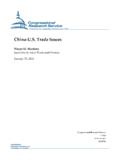
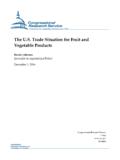
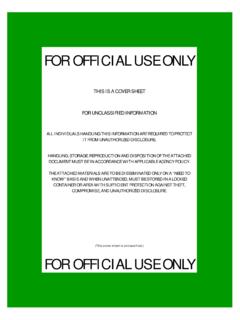
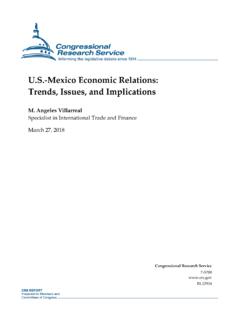
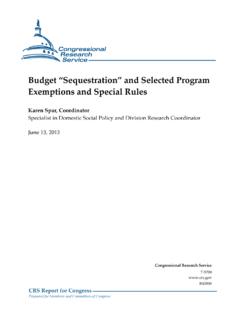
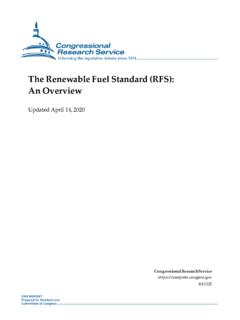
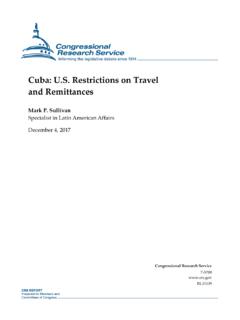
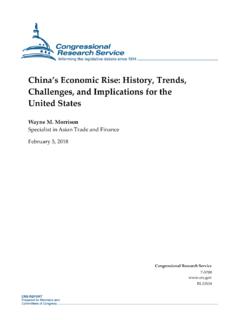
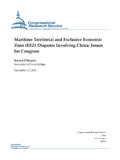
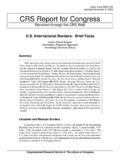

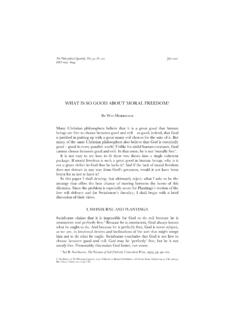
![Freedom [D, 143 bpm, 4/4] - Clover Sites](/cache/preview/7/b/3/2/e/a/0/2/thumb-7b32ea021db8eff043c12a0e79a94712.jpg)






